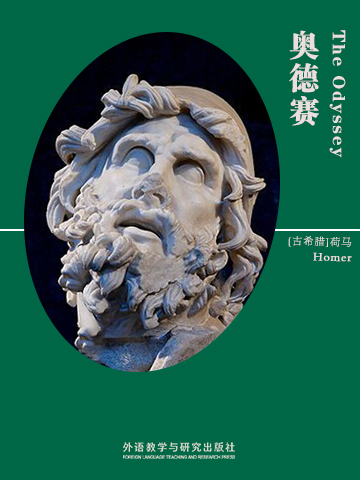如今,《奥德赛》已被译为多国语言,是公认的世界文学经典。许多学者认为,这部史诗是由一些诗人、歌手或专业表演者口头创作而成的。至于当时口头表演的细节是什么样,这个故事是如何由口头诗歌变为书面著作,学者至今仍争论不休。《奥德赛》的用语是一种书面的诗话希腊语,混合了伊欧里斯语、爱奥尼亚语等多种希腊方言。全诗共有12110行,通篇使用六步格和扬抑抑格。不仅是战士们的行动,诗歌的非线性的叙事方法,以及妇人和农奴们对事件发展的影响,都是《奥德赛》里引人注目的元素。
《奥德赛》,又译《奥狄赛》、《奥德修记》、《奥德赛飘流记》,是古希腊最重要的两部史诗之一(另一部是《伊利亚特》)。《奥德赛》延续了《伊利亚特》的故事情节,相传为盲诗人荷马所作。这部史诗是西方文学的奠基之作,是除《伊利亚特》外现存最古老的西方文学作品。一般认为,《奥德赛》创作于公元前8世纪末的爱奥尼亚,即今希腊安纳托利亚的沿海地区。《奥德赛》主要讲述了希腊英雄奥德修斯(罗马神话中称为“尤利西斯”)在特洛伊陷落后返乡的故事。十年特洛依战争结束后,奥德修斯又漂泊了十年,才回到了故乡伊萨卡。人们认为他已经死去,而他的妻子珀涅罗珀和儿子忒勒玛科斯必须面对一群放肆的求婚者,这些人相互竞争,以求与珀涅罗珀成婚。
The Odyssey is one of two major ancient Greek epic poems attributed to Homer. It is, in part, a sequel to the Iliad, the other work ascribed to Homer. The poem is fundamental to the modern Western canon, and is the second oldest extant work of Western literature, the Iliad being the oldest. Scholars believe it was composed near the end of the 8th century BC, somewhere in Ionia, the Greek coastal region of Anatolia.
- BOOK I.
- BOOK II.
- BOOK III.
- BOOK IV.
- BOOK V.
- BOOK VI.
- BOOK VII.
- BOOK VIII.
- BOOK IX.
- BOOK X.
- BOOK XI.
- BOOK XII.
- BOOK XIII.
- BOOK XIV.
- BOOK XV.
- BOOK XVI.
- BOOK XVII.
- BOOK XVIII.
- BOOK XIX.
- BOOK XX.
- BOOK XXI.
- BOOK XXII.
- BOOK XXIII.
- BOOK XXIV.
- 书评 写书评
- 笔记
-
书评加载中...


















 京公网安备 11010802032529号
京公网安备 11010802032529号
笔记加载中...